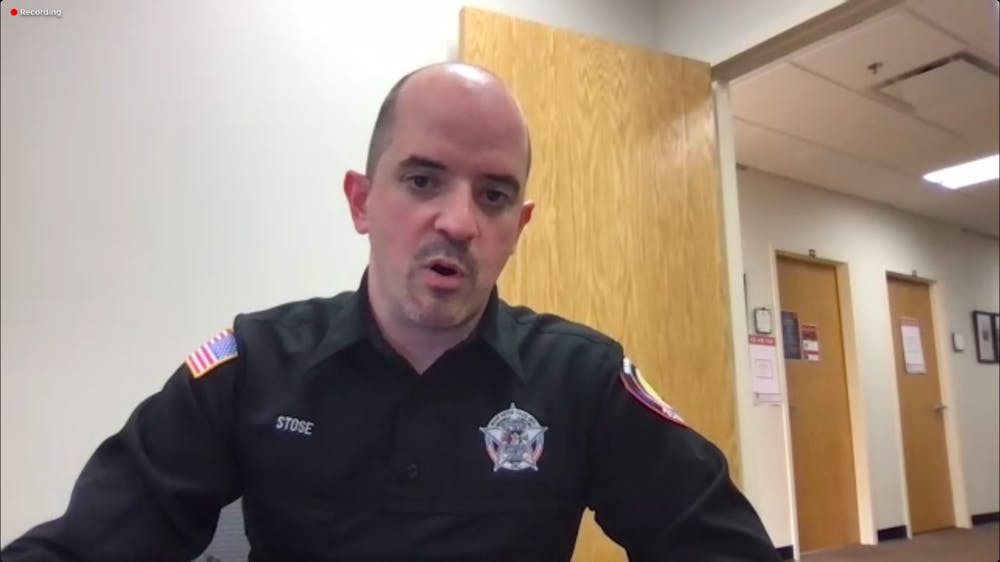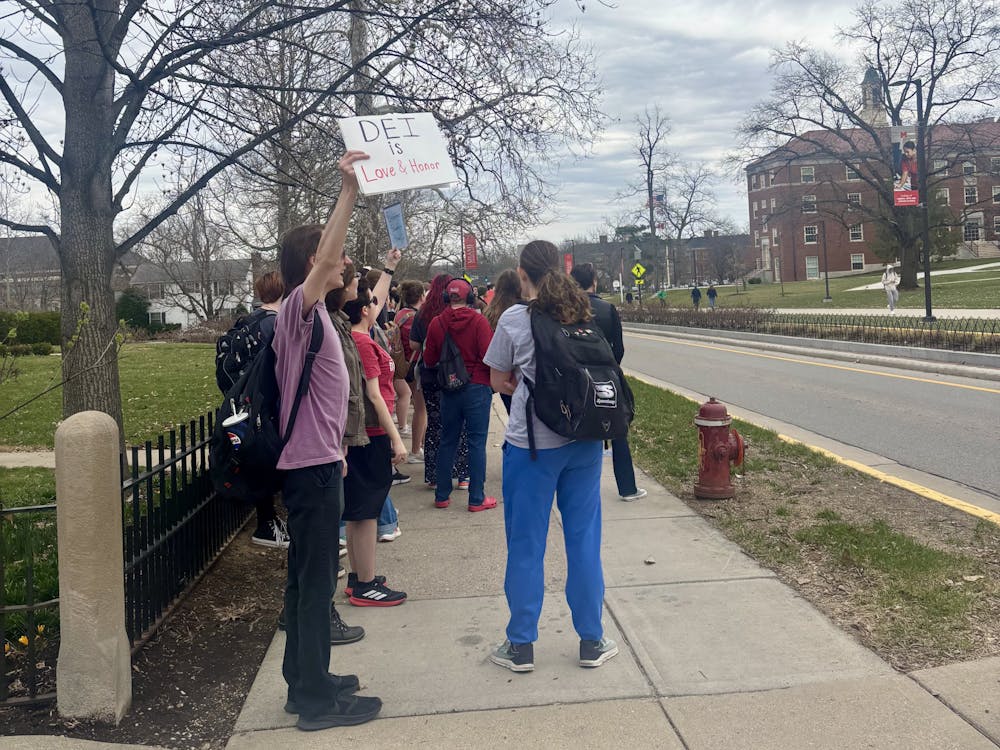On April 3, Abel Stose, the Chief of Police for the Miami Tribe of Oklahoma, visited Miami University’s Hamilton campus and hosted a virtual lecture about the history of the Miami Tribe and problems police officers are facing today.
The U.S. government recognizes Miami, Oklahoma, as tribal trust land, which means the government holds the legal title of the property, but the tribe holds the beneficial interest. The trust is held by the government for tribe use.
However, the land wasn’t always honored as tribal trust land.
Historically, the land was considered an allotted trust land in which the government still owns the property, but individual tribal members hold the beneficial interest. The land was not held communally by the tribe, and it was not managed by the tribe.
In 1887, Congress enacted the General Allotment Act, more commonly known as the Dawes Act.
“Congress decided to divide the tribal lands into individual pieces, and it gave each tribal member a parcel and sold the surplus parcels to non-native farmers,” Stose said. “So that’s where we’ve got this division at this period of time, where they divided these lands up.”
In 1934, the allotment system was abolished, but the Dawes Act had lasting effects that are still visible today.
Stose said policing in an area characterized by tribal jurisdiction and laws differs from regular policing. For one, Stose said law enforcement is required to retain tribal sovereignty in all scenarios, and Native American tribes have the inherent authority to exercise law enforcement within their territories. This includes the power to maintain public safety, investigate crimes and enforce tribal laws.
“Overall, tribal sovereignty in law enforcement allows tribes to maintain their own systems of justice and law enforcement that are tailored to their unique cultural and community needs,” Stose said.
Stose said a challenge his department faces today is policing Ottawa County with all the different tribes and jurisdictions located in close proximity. To help with this, the police department enlists advice from the Special Law Enforcement Commission through the Bureau of Indian Affairs (BIA), which allows qualified tribal and state law enforcement officers to enforce federal law.
The police departments also share cross-deputization, which allows state and local entities to enforce tribal law but involves a different process depending on the tribal nation involved.
“I can help assist other agencies, and they have the same authority to do so,” Stose said.
Enjoy what you're reading?
Signup for our newsletter
Lastly, the police department maintains cross-commissions with the city of Miami.
“The city police officers can now enter into the reservation, they can come onto trust land, and they can offer assistance,” Stose said. “They can make arrests on trust land just like we can move across onto the state as well.”

Stose said a challenge his department faces today is policing Ottawa County with all the different tribes and jurisdictions located in close proximity.
Stose concluded the lecture with a question and answer session. He wrapped up the discussion by acknowledging the divisive political conversation surrounding current law enforcement but remains hopeful for the future.
The event was hosted in partnership with the Menard Center for Democracy and the Department of Justice and Community Studies.
Daniel Hall, a professor in the department at Miami’s Hamilton campus, visited Miami, Oklahoma, a few years ago. While he was visiting, he discussed with the then-police chief the complexities of sovereignty issues in overlapping jurisdictions. When the university announced its focus on tribal sovereignty this year, Hall invited the new chief to visit the campus.
Hall had his comparative systems class attend the event and was looking forward to discussing the students’ takeaways from Stose’s lecture.
“I hope my students began to think about this kind of different space that exists within the United States,” Hall said. “Unfortunately, we don’t give Native Americans much attention, I think, in American education, and it’s a different space and the idea … of sovereigns within the sovereign is very interesting.”
Sydney Ring, a senior criminal justice studies major, attended the event and appreciated Stose’s discussion about the history of the tribe.
“I kind of wish Stose would have talked about the culture more so, but I feel like he did really well building up the history of where they came from and how Native Americans got to where they’re at,” Ring said.
Ring said after the lecture she now has a better understanding of the historical significance Native Americans play in American history.
“I always think Native Americans and the whole jurisdiction issue holds an interesting history,” Ring said. “And the Native Americans themselves hold an interesting part of history in our culture and the way they have been treated.”




